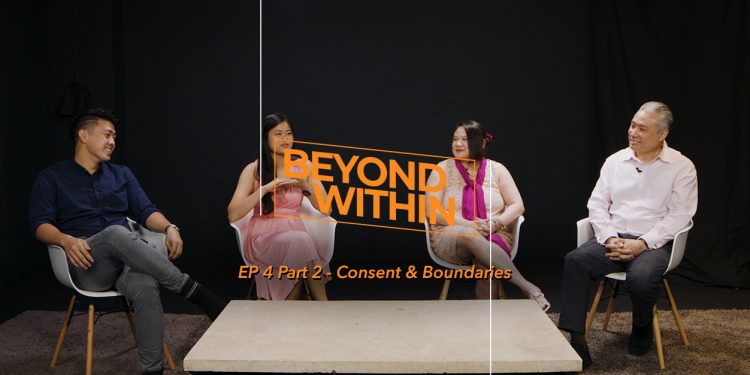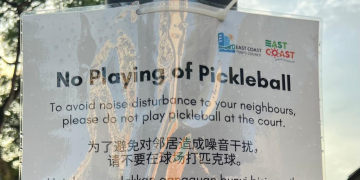This week’s panellists include two married couples: Aaroson Koh, Co-founder of an ‘adulting’ podcast called Mental Dumbells and Candice Koh, a flight attendant; as well as Lisa Tan-Koh, a certified professional coach and Lionel Koh, a professional (mind and emotion) clearer.
Here are some points from this week’s episode to start you thinking:
How consent applies in a relationship
Consent is important in every relationship, even in a marriage.
Lionel Koh, who has been married for 22 years, explains that it is important to seek consent in the bedroom and that it is a two-way street: “Both sides have to check in with each other, ‘Are you okay with this?’ And there has to be a clear ‘yes’ or ‘no’.”
Improving relationships and understanding each other in a marriage
Being in a marriage is always about learning and growing together. Aaroson Koh shares his experience of being in a new marriage: “It’s all about making sure both parties are alright.”
Communication is key in marriages, as well as learning from mistakes. A lack in communication can lead to a “break of intimacy… connection”, he explains.
Media setting unrealistic relationship expectations
In this episode, the panellists also express their views on modern-day media and how it portrays an unrealistic expectation of relationships to their viewers.
Mr and Mrs Aaroson Koh highlight how pop culture, such as Korean dramas, can create a “false idea” of what relationships are like.
Mrs Koh further notes that these misperceptions can be implanted into one’s mind, resulting in a need to find the “perfect” relationship, similar to what they see on TV.
Dealing with consent violations in the virtual space
On consent violations within the virtual space, Lionel Koh says matter-of-factly: “If you don’t want it to get up anywhere, do not send it.”
He also warns that uploading photos on certain platforms may inadvertently remove one’s rights to that image: “Check [your] privacy contents [terms and conditions], and all those consent that you have to give. You’re giving your consent by clicking agree.”
Educating the younger generation
Mrs Lisa Tan-Koh shares her experience as a parent having to inform her children about consent violations, highlighting that she cannot depend on other people to educate them.
She also explains how schools are providing students with outdated information, not addressing current issues that the younger generations face. She also notes that society should be more open to talking about consent and consent violations, providing firm and accurate information regarding these situations.
Coping with trauma from consent violations
Women tend to be “overly responsible”, says Mrs Tan-Koh. taking the blame for something that is not their fault to begin with.
To cope with this trauma, survivors would need to work out what is one’s responsibility and take ownership of that, but also what is not one’s fault, so as to be able to heal and move on.
Mr Lionel Koh adds that it is important to have a strong support system during this time: ‘The biggest part is to not be alone, and to not handle this by yourself.”














